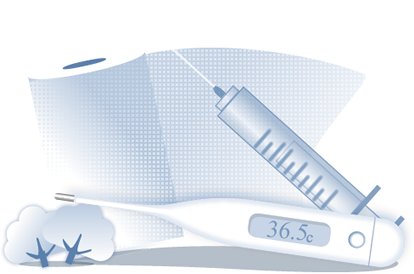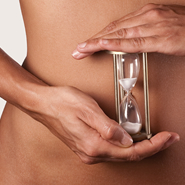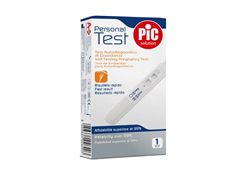
Get acquainted with your pregnancy
Think you may have a baby on the way, but not sure? Find out with a pregnancy test. We look at how it works, hormone measurement, the best time to take it, and some simple suggestions to make sure you get the correct result.
Do you know what the pregnancy hormone is?
If you're to be confident about your pregnancy test, you need to know about the pregnancy hormone. It's called hCG, short for human chorionic gonadotropin, and is secreted by the cells of what will become the placenta shortly after the embryo lodges in the uterus. If it starts to increase, it's good news!
Many pregnancy tests, one principle
It's important to know that all pregnancy tests work in the same way. They are based on the same principle, determining whether your urine contains the pregnancy hormone, which starts to be released about one week after fertilization. Obviously this hormone doesn't appear if you're not pregnant!
Do the test in the morning, and don't drink
Have you decided to take a pregnancy test? Start by doing the sums: a traditional test is reliable if you carry it out about 2 weeks after sex, or 3 days after your period should have started. One piece of advice? Always carry it out in the morning, when there will be a higher concentration of hCG in your urine. Another simple rule to follow: don't drink anything before carrying out the test, as this will "dilute" the pregnancy hormone. T
he golden rules of pregnancy tests
Nearly all pregnancy tests are similar to a pen, a kind of stick, which you should dip into your urine sample for 3 to 5 minutes. After this time the result will appear in a window, generally a line different to that in the control window. This is the moment of truth: if there's one line you're not pregnant, but if there are 2, the test is positive and you're now 99% certain to be a future mother!
Digital pregnancy tests are even clearer!
In some pregnancy tests, including digital ones, the vertical or horizontal line may be replaced by a message saying "you're pregnant" or "you're not pregnant", or by a smiling or frowning face. If the result of the test is not clear, we recommend that you repeat it a few days after the first attempt.
And if the test says "you're not pregnant"?
Remember that the result must always be confirmed by a blood test prescribed by your gynaecologist after the test that you've carried out yourself. Usually, if the result is positive, it is very unlikely to be wrong. If it is negative, you could still be pregnant, for example if you've carried it out too early without waiting for the recommended time. A solution that will dispel any doubts? Repeat the test a week later, and then you can be sure of the result.







